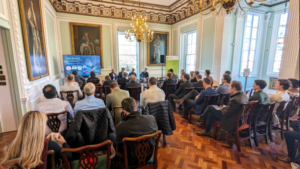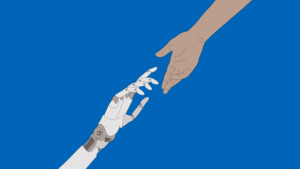
“The consulting industry has infantilised government”- how do we bridge the digital skills gap?
Professor Mariana Mazzucato of University College London recently made headlines by criticising the relationship between the consulting industry and government. While Professor Mazzucato is not against outsourcing per se, she argues that the overuse of consultancies leads to unnecessary expense and prevents the public sector from developing in-house capabilities. She adds that this situation will keep recurring because the consulting industry has little incentive to encourage the government to be more independent.
When I read this, I found myself nodding. The way the system is set up at the moment, consultancies have a tendency to focus on winning follow on contracts. What they should be doing is focusing on completing the job at hand and leaving their government customers in a more sustainable position. As Professor Mazzucato puts it, “a therapist who has their client in therapy forever obviously isn’t a very good therapist.”
This led me to think – what would I do if we were in government to change the situation? Here are my initial thoughts.
Mandate internal digital skills development as part of procurement
One of the reasons that outsourcing is so prevalent is the broader range of knowledge and experience that companies can source and flex compared to departments themselves. This is unlikely to ever change completely due to the bureaucratic nature of government and the variety of projects consultants get to work on – but the chain needs breaking to some degree.
At Zaizi, we have won contracts with organisations such as the NHS because of our commitment to training up client-side teams as part of the engagement so they can solve their own problems more easily. In the case of the NHS contract, this was a key requirement for a successful bid. However I have been surprised over the years to find that is not always the case. Public sector procurement is often inconsistent on this key issue.
The first thing I would do is formalise requirements for passing on digital skills and knowledge and make this a mandatory pillar of every procurement process. If a consultancy is going to allocate any given number of people to a project, at least 10% of the team should be civil servants who the consultancy commits to upskilling to a high level of competence. By the end of the engagement, the objective should be to have the entire team made up of civil servants.
There should also be a greater focus on secondments, with senior people going to work for consultancies for a period as well as vice versa. This will help to address issues raised in a recent National Audit Office report, which found that most digital change decisions in government are still made by generalist leaders who lack the expertise to fully comprehend and tackle digital challenges.
Be open and honest about where the gaps are
Changing procurement is one thing, but the approach will only work if public sector departments recognise where they need to develop to improve.
Another recent example of our commitment to upskilling is our work with a team in the Home Office. The team there was unfamiliar with agile working methods and putting user needs front and centre. Crucially, they were honest about that.
Working with the government’s Digital, Data and Technology (DDaT) team, we coached them through the process, and now the internal team is more confident in working in agile ways. We helped them adopt agile practices and put them into action, so they could see firsthand the benefits of this approach.
One of the things that helped with the knowledge and digital skills transfer was how we worked openly together. We constantly communicated with the client, they asked many questions, and they had regular access to our subject matter experts.
Thanks to our work with the Home Office, and the collaborative and transparent nature of it, the internal team has seen the benefits of adopting agile ways of working and using what we taught them to deliver other projects.
Transformation Day: Find out how to make a start on getting rid of your legacy tech
Be more entrepreneurial
Another of Professor Mazzucato’s long standing arguments is that governments need to be more entrepreneurial if they are going to develop their own capability and reduce reliance on outsiders.
There is definitely something in this. When Zaizi helps build services for UK public sector organisations, what we develop is their IP not ours. For a long time I have believed there is an opportunity for those organisations to work alongside us to commercialise what we have built together and take it to other countries and industries.
The GDS already enjoys a global leadership position, advising other nations around the world on how to do digital government. Why not extend this to commercialising digital products and services that solve common functional problems and serve citizens better? This will accelerate digital delivery, ensure long term sustainability of the product and most importantly help UK exports.
If this happened, government departments would stand a better chance of developing knowledge and experience of their products in a way that helps them build their own capabilities. It would also help them to attract talent with a remit that is more creative and dynamic.
If you would like to discuss any of the points I’ve raised here in more detail, please get in touch.
-

From ScanApp to Lego demos — What you need to know about Security & Policing 2025
-

Truth, trust and transformation — 4 key takeaways from Zaizi’s AI in government event
-

Zaizi talent shines at Computing DevOps Excellence Awards 2025
-

Advancing DevOps practices with AI —lessons from AWS re:Invent
-

Paris AI summit: Navigating the AI landscape and how SMEs can help UK government
-

Border Force wins Global Customs Innovation Award for ScanApp — a solution Zaizi helped build
